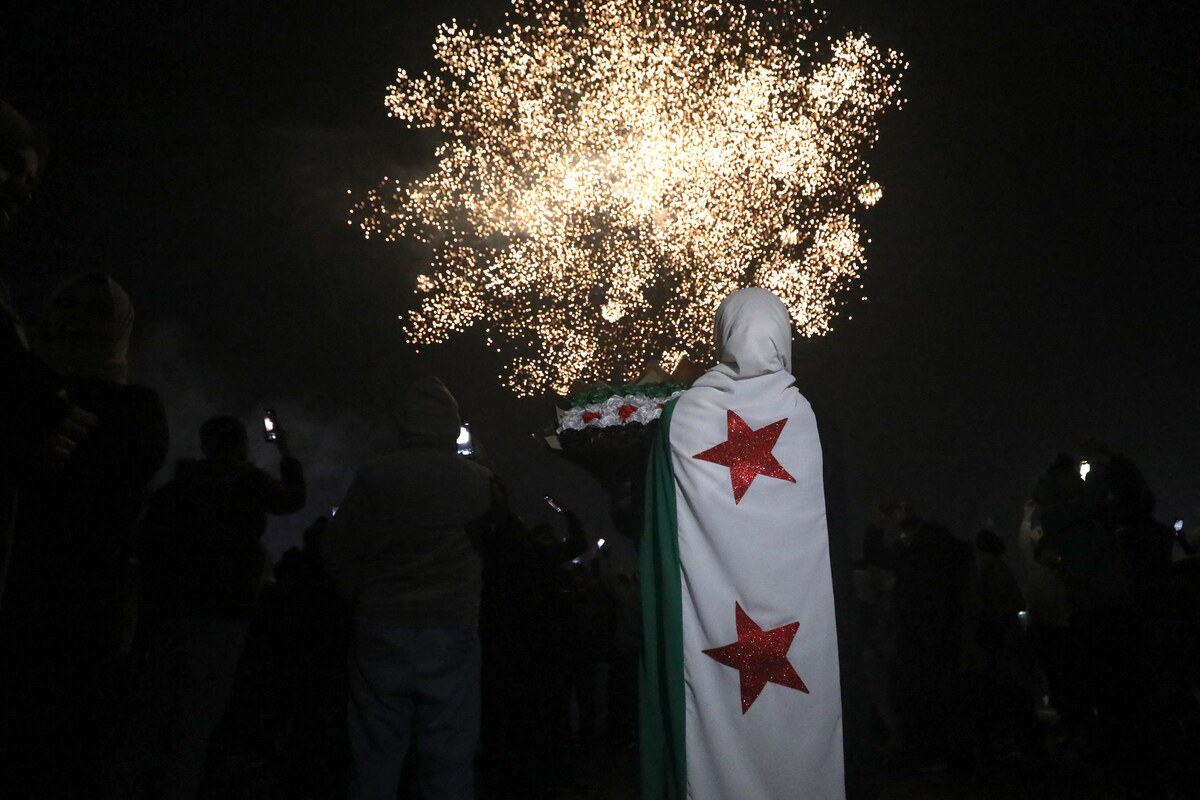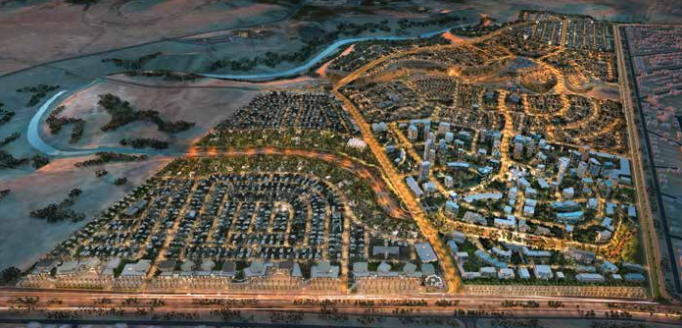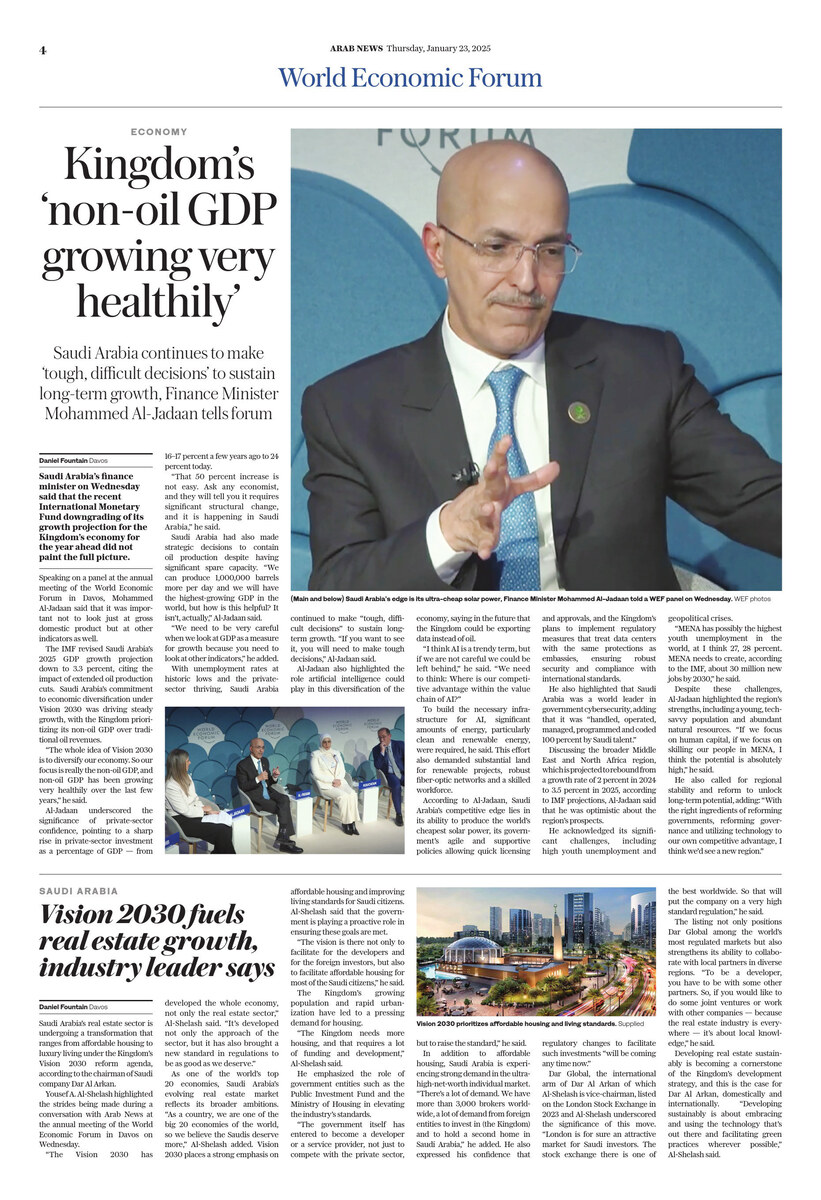RIYADH: Education quality needs to be improved across the Gulf if the region is to truly unlock its economic potential, experts have told Arab News.
Leading figures from the World Bank and regional consultancy firms, together with a range of recent reports and studies, argue that it is not just access to schooling that needs to increase, but the standard of education.
A report from the World Bank in May highlighted that according to its Human Capital Index, a child born today in the Gulf Cooperation Council region is expected to reach only 62 percent of their full potential productivity, mainly held back by low education quality
Speaking to Arab News, Safaa El-Tayeb El-Kogali, World Bank country director for the GCC: “Improving the quality of education is critical for fostering long-term economic growth and prosperity in the GCC.”
GCC countries are currently undergoing a significant transformation, driven by the need to diversify their economies in response to rapid technological advancements and escalating regional and global challenges.
This dynamic environment necessitates economies that are diversified and resilient, where knowledge and skills play a critical role, and El-Kogali said: “Quality education is critical for GCC countries in reaching their ambitious development goals.”
In recent years, governments across the region have made notable strides in expanding access to schooling and improving student learning outcomes. However, foundational literacy and numeracy skills still elude many students in the region, posing a major obstacle to human capital development and global competitiveness.
El-Kogali highlighted the importance of early investments in quality learning, saying: “Realizing the full potential of human capital in GCC countries requires smart and early investments in the quality of learning that children receive.”
Building solid foundational skills from an early age is crucial as they form the cornerstone of future learning and skills acquisition. Without this, children risk falling behind, becoming disengaged from school, and failing to acquire the advanced skills demanded by today’s labor market.
Effective teaching is pivotal in enhancing learning outcomes at all levels, making it essential to provide educators with the right knowledge and support mechanisms.
“Education contributes to long-term development and prosperity by improving people’s well-being and labor market prospects, leading to better employment opportunities and higher wages,” added El-Kogali.
Education also boosts individual productivity, propelling economic growth and building resilient economies that can adapt to a constantly changing environment.
The potential of education to spur economic growth is only achieved when it is of good quality and improves relevant skills and knowledge.
Increasing access to education is vital, but it is ultimately the skills people develop through high-quality education that determine its contribution to economic growth.
In a study conducted by El Mostafa Bentour for the Arab Monetary Fund in 2020, the contribution of human capital to GDP growth in 12 Arab countries was compared to Asian and OECD developed countries.
It found that Arab countries fell short, especially when compared to OECD economies, where a 1 percentage point increase in human capital leads to a 0.9 percentage point increase in GDP.
In contrast, the Arab world sees only a 0.5 percentage point increase, while Asian countries see a 0.6 percentage point increase.
A 2008 research paper published in Journal of Economic Literature also found that a 100-point improvement in standardized test scores is associated with a GDP increase of up to 2 percentage points.
Academics Gabriel Heller-Sahlgren and Henrik Jordahl further extended this analysis to 2016, revealing a 1.3 percentage point increase in GDP per capita for each 100-point improvement in test scores.
The role of private education
The GCC K-12 private education market is experiencing significant growth, driven by population increases, rising income levels, government initiatives, and a growing expatriate population.
Increased awareness of the importance of primary education and the need for high-quality options are key drivers of this growth.
Mansoor Ahmed, executive director for healthcare and education at Colliers in the MENA region, told Arab News: “Government initiatives such as Saudi Vision 2030 aim to enhance the quality and accessibility of education.”
Despite these positive trends, the market faces challenges such as high construction costs and the affordability of tuition fees, which limit accessibility for lower-income families.
However, opportunities for growth abound through technological advancements, partnerships with international institutions, and the development of specialized education programs in areas such as science, technology, engineering, and mathematics as well as artistic endeavors.
Mansoor Ahmed, executive director for healthcare and education at Colliers in the MENA region, told Arab News: “The GCC K-12 private education market presents a lucrative opportunity for investors, educators, and stakeholders aiming to capitalize on the region’s growing demand for high-quality education.”
Saudi Arabia’s educational landscape
Among the GCC nations, Saudi Arabia stands out due to its size and demographic trends. The Kingdom, with a population of 32.2 million in 2022, has a higher proportion of nationals compared to expatriates. This demographic reality suggests that K-12 education operators should focus primarily on Saudi nationals to attract sustainable demand, a Colliers report told.
Despite vast resources and investments, Saudi Arabia has the lowest total student penetration rates in the region for private sector K-12 education, with only 15 percent attending such institutions.
Saudi Arabia’s private education sector holds significant potential for growth, particularly by targeting the Kingdom’s nationals. The growing population and young demographics underscore the need for additional schools, with projections indicating that the school-going population will increase from 7.5 million to almost 9.4 million by 2030.
Opportunities are particularly on offer in second-tier cities such as Makkah, Madinah, and Al-Ahsa, as well as Abha, and Taif.
These cities currently lack high-quality private schools but are undergoing major expansion plans, creating increased demand for K-12 education.
The rise in white-collar expatriate populations and the opening of international branded schools in main cities are expected to drive the growth for private education.
Affordability remains a crucial factor, with average tuition fees in the GCC region and Saudi Arabia ranging from $10,000 to $30,000 per annum.
According to Ahmed: “The sweet spot for international private schools would range between $15,000 to $20,000 per annum.”
The transformation of education in the GCC is paramount for unlocking the region’s economic potential.
By focusing on quality education, the region can build a skilled workforce capable of driving long-term economic growth and prosperity.
This strategic investment in human capital is essential for the region to navigate the challenges of a rapidly changing global economy and to achieve its ambitious development goals.

































